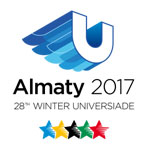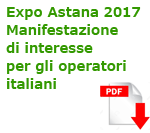A loan agreement signed between Kazakhstan and the World Bank
 A Loan Agreement on the East-West Roads Project (Almaty-Khorgos section): the International transit corridor Western Europe – Western China (CAREC 1b)” was signed today between the Republic of Kazakhstan and the World Bank.
A Loan Agreement on the East-West Roads Project (Almaty-Khorgos section): the International transit corridor Western Europe – Western China (CAREC 1b)” was signed today between the Republic of Kazakhstan and the World Bank.
The new 305 kilometers road from Almaty to Khorgos to be opened in 2015, being a transit link between China and Kazakhstan and other Central Asian countries, has a great potential to accelerate trade flows and economic prospects to boost the regional economy.
“The East-West Roads Project signed today will complete the upgrade of the Western Europe-Western China Road Corridor,” says Bolat Zhamishev, Minister of Finance of the Republic of Kazakhstan. “Aimed at improving the efficiency of the transport link from Almaty – one of the main economic centers of Central Asia – to Khorgos, the main road border crossing between Kazakhstan and China, the Project will help improve access to markets, enhance business opportunities, and create more jobs”.
The new Project will lead to more efficient transport, lower road-user costs and improved level of services along sections of the WE-WC Road Corridor. In order to fully achieve the objectives, the Project will also assist in implementing an improved highway operations and maintenance based on the agreed levels of service. This will lead to a lower social cost, stemming from the reduced road traffic injuries, and an increased travel speed and riding comfort.
“Managing roads, an important public asset, in an efficient and effective manner requires adequate institutional capacity as it is very expensive to build and maintain roads,” said Sebnem Akkaya, World Bank Country Manager for Kazakhstan. “Therefore, in addition to physical investments to improve the quality of the roads, the Project will increase efficiency and effectiveness of the modern highway operation and maintenance by scaling-up the road transport sector reform efforts initiated under the on-going South West Roads project, financed by the World Bank.”
In the course of implementation of the WE-WC Road Corridor development program, the Government is taking steps towards reforming the Ministry of Transport and Communications to improve the road asset management system, road safety and road services.
The Government successfully works on improvement of governance, anti-corruption measures and internal controls and audits in the transport sector. As a result, the savings of US$360.2 million during the procurement process of the on-going South West Roads project allowed for financing of an additional 80 kilometers highway along the same road corridor, as an extension to the section currently financed west of Shymkent city to the Shymkent/Zhambyl oblast border. Aimed to rehabilitate almost half of the WE-WC Road Corridor in Kazakhstan, the project is already changing the face of the region. More than 500 kilometers between Kyzylorda and Aktobe oblast border will be upgraded using the new type of pavement surfacing and more than 500 kilometers between Kyzylorda and Zhambyl oblast will be converted to a four-lane highway by 2015. And about half of the road length will be opened to traffic by the end of 2012.
The issues related to social and environmental impacts are successfully addressed and managed as well. Following the efforts to enhance supervision and public oversight, the National Expert Council for Transparency and Sustainable Development is established comprising the Roads Committee, Project Management Consultants, Supervision Consultants, and civil society representatives. The Council already started the monitoring activities to ensure more accountability and transparency by detecting, preventing or resolving the socio-economic, labor, environment or corruption cases along the construction site.
The total East-West Roads Project cost amounts to US$1 256.5 million, including the World Bank loan of US$1 068.0 million, and a co-financing from the state budget of US$ 188.5 million.
The Ministry of Finance of the Republic of Kazakhstan is responsible for servicing and acquittance of the loan from the funds envisaged by the Law On the State Budget for the next fiscal year, according to the financial terms and conditions of the Loan Agreement.









